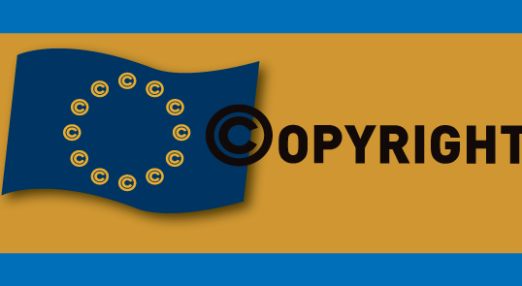Our work
EDRi is the biggest European network defending rights and freedoms online. We work to to challenge private and state actors who abuse their power to control or manipulate the public. We do so by advocating for robust and enforced laws, informing and mobilising people, promoting a healthy and accountable technology market, and building a movement of organisations and individuals committed to digital rights and freedoms in a connected world.
Filter resources
-

Polish government: Watchdogs are not welcome
Governments do not like being watched. Nevertheless, it has become common in developed democracies to support independent media and watchdog organisations, sometimes even with dedicated public funds. Wise governments know that listening to justified and neutral criticism is a way to survive past the next elections. The Polish government has clearly decided to follow another […]
Read more
-

Booklet: Digital Defenders help kids defend their privacy around Europe
In October 2016, we published a booklet entitled “Your guide to Digital Defenders – Privacy for kids!“, to help young people between 10-14 years to protect their privacy.
Read more
-

Net neutrality violations ceased after AKVorrat intervention
On 5 October 2016, EDRi observer AKVorrat Austria filed a complaint with Austrian telecoms regulator RTR against mobile operator Hutchison Drei based on Drei’s violations of net neutrality principles. Now the operator has given in and stopped the offending practice. At the same time, Drei has more than quadrupled data volumes included in its data […]
Read more
-

Copyright reform: Document pool
The current European copyright system is broken. We need to repair it as soon as possible, in a way that respects the rights and values of European citizens and creators – not only those of intermediaries such as publishers, record companies or collecting societies!
Read more
-

#6 Freedom to stay anonymous: How to defend yourself against online surveillance
This is the sixth blogpost of our series dedicated to privacy, security and freedoms. In this series, we explain how your freedoms are under threat, and what you can do to fight back.
Read more
-
Info warfare in Serbia: The hidden hand of internet interventionism
Over the past couple of years, the digital environment in Serbia has become a new area for battle over information control. We’ve witnessed technical attacks on online media websites, attempts at suppressing information online, organised social media campaigns for narrative control, as well as offline tactics such as detentions, threats and equipment seizure. SHARE Foundation […]
Read more
-
Dutch BBA 2016: Facial recognition, medical data and safe messaging
An anonymous country singer, the watchdog-walking service and the I-have-nothing-to-hide musical. These were just a few elements thrown in by theatre producers and performers Oscar Kocken and Daan Windhorst. Just add a crash course “Lying with charts”, a few tasteful awards, and you have an awards ceremony – simultaneously funny and serious – about privacy. […]
Read more
-

Free flow of data – what is it?
The “think tank” European Centre for International Political Economy (ECIPE) recently produced a database of “restrictions on data”. The database lists laws which, in ECIPE’s opinion, are barriers to trade in 65 economies worldwide, including the European Union, and it was produced apparently due to influence from “the business community”. The database considers the EU […]
Read more
-

The post truth of “threat intelligence”
In the context of identifying the root cause of security breaches or attacks, we often see the threats emerging from weapons such as botnets, viruses, malware, etc. However, the biggest network security threats can also reside within a company. For this reason, modern techniques of network security forensics – the process of identifying the root […]
Read more
-

European Union Directive on counterterrorism is seriously flawed
BRUSSELS—European Union Member States must ensure that a new effort to standardise counterterrorism laws does not undermine fundamental freedoms and the rule of law, a group of international human rights organisations said today. Amnesty International, the European Network Against Racism (ENAR), European Digital Rights (EDRi), the Fundamental Rights European Experts (FREE) Group, Human Rights Watch […]
Read more
-
Commission responds to Ombudsman investigation on EU Internet Forum
In April 2016, the European Ombudsman launched an investigation into the European Commission’s failure to disclose information of the “EU Internet Forum”. The EU Internet Forum brings together US internet companies (Microsoft, Facebook, Twitter, Google), government officials, and law enforcement agencies to discuss how to reduce the accessibility of undefined “terrorist material” and badly defined […]
Read more
-

European and Canadian civil society groups call for rejection of CETA
Today, on 28 November 2016, European Digital Rights (EDRi) co-signed a statement together with over 450 civil society organisations. In the statement, civil society from both Europe and Canada express concerns about the Comprehensive Economic and Trade Agreement (CETA) and therefore call for its rejection. CETA should be renegotiated, but for that to happen, there […]
Read more
